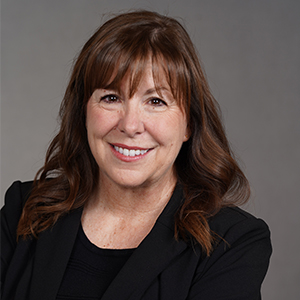Editor in Chief Sarah Wheeler sat down with Matt VanFossen, CEO of Absolute Home Mortgage and Mortgage Automation Technologies, to talk about his unique view of the housing ecosystem and how it influences how he builds technology. Van Fossen not only heads a mortgage lender and a tech company, but is the president of the Mortgage Bankers Association of New Jersey and a board member of the Community Home Lenders of America.
Sarah Wheeler: You wear a lot of hats. How do all those different roles influence the technology you build?
Matt VanFossen: We build technology not only to sell but that we want to use. That culture resonates throughout our company and into our product lines. A differentiating factor of our tech is that lots of point of sale systems are built to faciitate loan officers with the business they already have. While we do that, we’re also focused on driving new business — from new clients but also from the relationships they already have.
We are focused on compliance and data capture at the top of the funnel, so we look at: how do we introduce loan officers not only to new technology, but to new business opportunities?
SW: What does that look like in very practical terms?
MVF: We realized that we needed to focus on the real estate agents our loan officers work with. Over the past 10 years, loan officers have become accustomed to forwarding their application right to the referral and taking the app, but what about their real estate agent counter-parties? Right now LOs have to go and remind agents and constantly be in front of them asking about referrals.
But a real estate agent has a limited amount of resources for elevating their referral. They might be driving down the road when they get a call or text message. Then they have to take whatever information they got and manually enter into their CMS. So we recoded the point of sale system so we can partner with agents on software. Now they have their own online application, but it’s not an application for a mortgage — it’s an application to buy or sell a house.
And now, anytime the agent uses those workflows, the loan officers are privy to that information. LOs can easily go in and see if they need to be preapproved and do that from their phone. So we reverse-engineered a lot of what we’ve built for loan officers and applied it to agents.
We basically created a massive collaboration system. From the first point of contact the customer has with the agent, they are being introduced to a digital ecosphere and they can remain in sthe ame portal all the way through the transaction. It’s the same portal to sign docs, eClose, get servicing information, even post-closing information. And if they ever need to apply for a new mortgage or refinance, they’re still living inside that port. So we’re keeping our customer from the first point of interaction all the way till the end of the real estate transaction and for the remainder of their lives inside of a single ecosphere.
SW: What was the “aha” moment that led to this development?
MVF: I hang out with a lot of LOs and agents, just in a social context, so the aha moment came when I was on a trip with friends. One is an agent and the other is an LO, and they both had to step away from the table like four different times, and I realized that the agent was getting new client referrals and had to pass that back to their team manually. I had completely missed this — that real estate agents don’t have an online application. An LO can text the link to their application portal, but not the agent. I realized we’ve been focusing for a decade on how to streamline this process for LOs but had abandoned our counterparties.
Because of my positions at a tech company, a mortgage company and in regulatory compliance, I have a view into all three points of this triangle — and I have developers that can go build it! Sitting on top of all three at the same time, I can see how they are all intimately intertwined, and I can test it with my own lender. I’m a user of this tech so I’m the mad scientist that’s experimenting on himself! I can jump in and code something, call an agent to have them come in and see it, then use with my own clients first. Then we can think about the enterprise version. It’s almost farm-to-table programming.
SW: So does that mean you only build versus buy?
MVF: No, because there are differet platforms that have some amazing features. We will build over buy in certain things but you can’t take over everything. We have some fabulous vendor tech partners in this industry. We’re focused on point of sale because it gives us control over the loan officer and agent and client experience, so we want to be in the driver’s seat for that.
But even with that mini-POS for agents, it’s not a full-blown CRM and they still need to use their CRM vendors, who will be better at journey campaigns, for example. And we work with awesome loan origination systems like Encompass to maintain compliance and a database. We can’t conquer every avenue so for us it’s about strategy and where we can get the biggest lift with our own tech and then shop the marketplace for strategic partners.
SW: What keeps you up at night? Security?
MVF: I am constantly thinking about this and how I’m not only responsible for cybersecurity for my various companies but also now my point of sale. But we’re very unique and the architecture we built for it was not possible more than a year ago. So rather than having two databases — one POS database where people apply online and then that application goes into another database where you hold that PII inside of it, and you synch those through an API — we don’t do it that way. We have single source of truth.
When an application comes in, or any of the Realtor referrals come in, they all get logged immediately into ICE’s Encompass. We don’t have a database — it all instantaneously, through an encrypted API transaction, as soon as the application hits it goes into Encompass. So there’s only one place and location and all of the loan data resides in that. So we are now more secure than ever because ICE has phenomenal information security. So what we do is put a customization layer on top of it. It’s a highly configurable, easy-to-use user interface that shares a database, rather than maintaining two databases. And that solves a lot of cybersecurity issues.
The other thing that keeps me up is mortgage rates and when we’ll see quantitative easing. What the industry really needs is to get some tailwind into the market.
When you look at the three things I’m involved in — I’m running a lender, I’m running a FinTech and I’m in advocacy. What solves all of that is a little bit lower interest rates. That will strengthen the housing market and make sure that independent mortgage bankers have stability in extremely volatile times. That ensures the tech company will continue to innovate, and all of those things together is going to help consumers, especially low to moderate income consumers.






